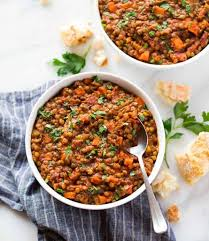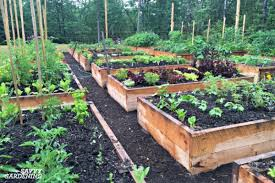Supermarkets are slightly scary places at the moment as Australia prepares for the unknown. Will we be quarantined? Will we be stuck at home? Do we want to brave the supermarket as this pandemic escalates? Temporary product shortages abound as we panic-buy life’s essentials and although there’s no need to hoard, it makes sense to try to minimize trips to the supermarket and stock up a little. So we may have to be a bit adaptable and flexible with our food choices. At the same time we need to be trying to keep our bodies and immune systems healthy, so healthy eating is important. Here’s the Apple-A-Day Dietetics guide to pantry staples to grab if you can: Legumes – a lot of people are onto this already, but legumes are a versatile vegetable that provide protein, low GI carbohydrates, plenty of fibre and are a good source of iron. Tinned or dried are both good options, though dried will take longer to cook. These could be made into a curry eg dahl, thrown through a pasta dish or salad, made into burgers or used to extend meat dishes, among many other options.Canned fish – Excellent protein source and a good source of immune boosting omega 3 fats. Buy bigger tins for better value. Can be mixed through pasta, made into rissoles, used as a sandwich filling or just eaten straight!Nuts and nut butters – Nuts and nut butters provide healthy fats and protein and store really well. Seeds like chia …
Supermarkets are slightly scary places at the moment as Australia prepares for the unknown. Will we be quarantined? Will we be stuck at home? Do we want to brave the supermarket as this pandemic escalates? Temporary product shortages abound as we panic-buy life’s essentials and although there’s no need to hoard, it makes sense to try to minimize trips to the supermarket and stock up a little. So we may have to be a bit adaptable and flexible with our food choices.
At the same time we need to be trying to keep our bodies and immune systems healthy, so healthy eating is important. Here’s the Apple-A-Day Dietetics guide to pantry staples to grab if you can:

- Legumes – a lot of people are onto this already, but legumes are a versatile vegetable that provide protein, low GI carbohydrates, plenty of fibre and are a good source of iron. Tinned or dried are both good options, though dried will take longer to cook. These could be made into a curry eg dahl, thrown through a pasta dish or salad, made into burgers or used to extend meat dishes, among many other options.
- Canned fish – Excellent protein source and a good source of immune boosting omega 3 fats. Buy bigger tins for better value. Can be mixed through pasta, made into rissoles, used as a sandwich filling or just eaten straight!
- Nuts and nut butters – Nuts and nut butters provide healthy fats and protein and store really well. Seeds like chia and linseeds are also excellent and versatile.
- Oats or other high fibre cereals – oats are fantastic and can obviously be used to make porridge/muesli, but can also be added to smoothies/pancakes/slices for some extra low GI carbohydrate and fibre
- High fibre crackers/wraps – Crackers and wraps have a longer shelf-life than normal breads so could be better options to stock up the pantry.
- Vegetables – Some fresh vegetables are ridiculously expensive at the moment ($15/kg for capsicum!!) so we’ll be skipping the more expensive ones for a while. While frozen vegetables are hard to come by at the moment, supply issues should improve and they can be a great way to stock up on vegetables. Other long-lasting fresh vegetable options include carrots, potatoes, sweet potato – keep in the fridge if you have the space to keep them from going off for longer. Tinned vegetables like beetroot, asparagus, corn, beans are also options, though can be a little higher in added salts. And dried and tinned legumes count as vegetables too!
- Canned fruit/dried fruit /frozen fruit– While fresh is best for vitamin C, you’ll still get antioxidants, sometimes fibre.
- Longlife milk/milk alternative – The most shelf stable dairy option. If you’re choosing a milk alternative look for one with some calcium and protein. Soy is usually a pretty good substitute. You can even make yoghurt with it!
This can also be a great time to build a slightly more sustainable way of life. Plant a veggie garden, minimise waste, visit farmers markets and smaller retailers.

When planting: Salad vegetables are fairly quick to grow, so grab a few lettuce and rocket seeds, some tomato seedlings, plant your spring onion bulbs and they’ll regrow. You can also grow tomatoes/cherry tomatoes/capsicum/passionfruit from the seeds you get from the grown vegetables/fruit, just plant them in a small pot or seedling tray until they are big enough to plant out in the garden.





